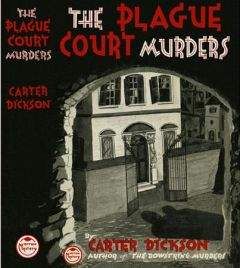Frost - Marianna Baer
own family. Not about yours.”
92
It took a couple of seconds for his face to soften. “Sorry,” he
said. “I just assumed.”
“That’s okay.” I stepped back up on the chair and refocused
on hanging the shades, something I knew how to do. My hands
trembled.
We worked for a while in unsettled silence. I couldn’t believe
how many stupid things I’d said. I wasn’t usually so tactless. After
a few minutes, I asked, “Would you mind if we listened to my bio
lecture?”
David didn’t answer right away. “It’s not you,” he finally said,
keeping his eyes on what he was doing. “I’m just so used to being
defensive about my family. But you’ve been so cool about Celeste
moving in here, hanging these blinds for her, and you’re not all
freaked out about my dad, like people get. I appreciate it.”
I could tell that this was a major thing for him, protecting his
family. I guessed maybe he’d had to take his dad’s place, in some
ways.
“Thanks,” I said. “I appreciate . . . your appreciation.” Really?
That’s the best you could do?
Now he looked at me and smiled. “And I appreciate your
appreciation of my appreciation.”
“That’s so sweet.” I put a hand on my heart. “I appreciate
your appreciation of my appreciation of your appreciation.”
93
We laughed—holding eyes. As I stared, something moved
behind him. I looked just in time to see the photo he’d hung fall
right off the wall, onto the bed. It landed with a clatter as the
Plexiglas jostled in the frame.
David turned. “Oops,” he said.
Because we’d smoothed over the tension between us, I
allowed myself a little dig. “I think, maybe, it’s better if you leave
the home-improvement projects to me.”
After David left, I couldn’t settle down to homework quite
yet—the conversation had been too intense and now I had too
much on my mind. I decided to see if there was anything I could
do to fix Celeste’s closet door. She kept having trouble opening it,
and I didn’t know if it was a problem with the knob, or if the wood
was swelling.
I tried the handle and the door opened smoothly. I turned
the knob back and forth, looked at the movement of the latch. It
seemed fine. I shut the door and opened it again, seeing if the
wood stuck. It didn’t. I couldn’t tell what the problem was. I
leaned my back against the doorframe, shut my eyes, and
breathed in. My skin tingled. Then the emotion—that sense of
contentment, safety—penetrated my cells. It’s weird, how scents
can be so powerful. My mother once told me that smells are key
to selling a house. Freshly baked bread, cinnamon, and coffee are
best, she’d said.
94
The day I came home from school in eighth grade and our
own house smelled of baking bread, I wanted to vomit. Instead, I
ran upstairs, to the one place the smell couldn’t reach.
Wait a minute.
I breathed in again.
The attic.
That was it, wasn’t it? My attic fort in our house in
Cambridge. That’s what the closet smell reminded me of. I slid
down to the floor and folded my legs into my body. I couldn’t
believe it had taken me this long to make the connection.
Our house was a fixer-upper; my parents had always planned
on turning the spacious attic into a living space. But, in the
meantime, it had been a curious kid’s heaven—full of my parents’
and even my grandparents’ histories in junk and paper: love
letters, old school report cards, yearbooks, clothing, toys. . . .
If the whole attic was my kingdom, my fort was my castle. It
was hidden behind a rusty file cabinet and a coatrack where
someone’s ancient furs hung in plastic bags, just a simple pine
frame, covered by an old sheet, with pillows and a few stuffed
animals inside. An older cousin had helped me build it, and I’d
sworn her to secrecy. What was the point in having somewhere
to disappear to if other people knew where I went?
I squeezed my knees closer to my chest now, remembering
the day the Dumpster had arrived, the week we’d moved out.
95
“Okay if I trash the wood from your old playhouse, Bean?” my
dad had said. Turned out, my parents had known about it the
whole time. One of the many things I’d become disillusioned
about.
“We’ve grown apart,” my mother said when she’d told me
they were splitting up. “All we have in common are you and the
house, Leenie.”
Well, yes. Wasn’t that their life?
We were a trio, after all. A unit. Whenever we played the
“what building would you be?” game, I’d tell them that Mom was
the downstairs floor of our house, I was the middle floor, and Dad
was the top, not separate buildings at all. They let me believe I
was right.
It was obvious why I’d thought that. I’d lived in that house
from the time I was born, and fixing it up was my parents’
passion. Why had they bothered if they knew we were just going
to sell it to strangers?
After the divorce, they both moved to condos: my mother to
an all-glass, modern monstrosity in LA, where she was originally
from, and my dad to a supposedly “luxury” one-bedroom on the
outskirts of Cambridge with hear-through walls and hollow doors.
I was reading Catcher in the Rye the first time I saw my dad’s
place. I decided his condo was the architectural equivalent of
96
Holden’s phonies. I couldn’t believe my dad, of all people, was
living there. He said it was temporary; that was three years ago.
Now, I ran my hand lightly across Celeste’s clothes. Was
David trying to bring his sister back to a less messy time, by being
so protective of her? Maybe they’d had an idyllic childhood, with
a father who wasn’t sick yet. Maybe David’s vigilance was an
attempt at keeping Celeste safe from the ugliness of reality.
Maybe he was trying to build her a fort.
When I emerged from my closet reverie, I took a moment to
rehang Celeste’s photo. I wasn’t quite sure why it had fallen to
begin with—there was actually nothing wrong with the way David
had installed the nail. To be safe, I took the nail out and
hammered it in again, at a bit of a steeper angle. After resting the
frame on it, I studied the image for a moment. Even though it was
disturbing, there was something compelling about it. Still, I didn’t
understand how Celeste could want to look at a picture of herself
in which she appeared dead. I hoped—for both of their sakes—
that David was just a worrier. That he didn’t need to protect his
sister from anything.
Later, after dinner, I was in the bedroom going over my
notes for my first, short English paper when Celeste appeared in
the doorway. “I’ve never been so over-caffeinated in my life,” she
announced, then hopped in and collapsed next to me on my bed,
letting her crutches fall on the floor.
97
“Where’ve you been?” I asked.
“The Mean Bean. The guy there is madly in love with me.”
She handed me a crumpled, white paper bag. “He gave me two
free iced latte refills and three of those dark chocolate biscotti.
Now I’m supposed to meet people at open mic at Graham House
and I’m all juiced up. And I’m going to have to pee every five
minutes. You want to come? I might sing. If they’re lucky.”
“You sing?” I opened the bag and broke off a piece of cookie.
“No. But I pretend I can.”
“Tempting,” I said, smiling. “I think I’ll stay here, though.” I
was about to turn back to my notes when I remembered. “Hey.
Don’t you notice anything?”
It took her a moment. “The shades, you mean?”
“Yeah. What do you think?”
“They look okay,” she said. “But can’t people see right
through them? They’re just paper.”
“No,” I said. “Maybe at most someone could see fuzzy
silhouettes.”
I went back to studying as Celeste got up and began putting
together an outfit to wear to the open-mic thing. When she’d
finally settled on a dark red dress with black net tights, I noticed
her looking around at the windows. I thought I saw her shiver
98
slightly, before she grabbed her crutches and her clothes and
headed to change in the bathroom.
That night was only one week into the semester. I don’t think
I ever saw her undress in the bedroom again.
99
Chapter 10
THE SHADES DIDN’T DO A VERY GOOD job of helping
Celeste sleep, either. With the windows open, they flapped and
crackled in the wind. Or so she said. With the windows closed, the
air in the room was stagnant and stifling. Also, moonlight filtered
in through the rice paper. So, despite my best efforts, after three
or so weeks at school, Celeste hadn’t gotten a good night of sleep
yet, and I heard about it. Often.
Every time someone came to me for peer counseling and had
complaints about their roommate—which was a lot of what us
counselors dealt with at the beginning of the year—I wished I
could offer my own stories, so we could commiserate.
During one of my sessions, a redheaded freshman was
especially upset. She sat in the chair across from mine, crying,
trying to explain to me all of the ways in which she was unhappy.
“Is the roommate situation what’s bothering you the most?”
I asked when she seemed to have finished her initial, somewhat
rambling explanation.
“Uh-huh.” She blew her nose into the tissue I’d given her.
“Are people ever allowed to switch?”
“Only in extraordinary circumstances,” I said. “Having a
roommate is like living with your sister. She might not be your
best friend, but you have to make it work.”
100
“But I liked living with my sister,” the girl said in a tone
verging on a whine. “I wish I still were.”
“Why did you come to Barcroft?” I asked. Maybe this wasn’t
so much about her actual roommate.
“My dad wanted me to. He went here. I . . . I guess I didn’t
really not want to come. But I would’ve rather stayed with them. I
want to be home.” She crossed her arms and stared out the
window. Beyond our reflections in the glass, the new addition to
the library glowed in the night, like an enormous, geometric ice
sculpture. I could see two people inside gazing back in our
direction. For a moment, I thought one was David.
Since spending that morning together installing the shades,
he and I had started hanging out a bit—walking to classes, sitting
on the steps before the bell, sometimes having a meal at
Commons. He’d left a series of notes in my mailbox: The
Principles of Spoon Theory. I smiled, thinking of them, forgetting
for a moment the girl was waiting for me to say something.
“Well, look at it this way,” I said. “You have to change your
frame of mind so that from now on, Barcroft is home. When you
go visit your parents, you need to think of it that way—as visiting.
Otherwise when you’re here, you’ll always feel like you’re away,
which is kind of an ungrounded way to feel. Right?”
She nodded and sniffled. I offered her the tissue box again.
101
“So, if you went into Boston next weekend and met
someone, and they asked where you lived, you’d say, ‘Barcroft,’
you know? Instead of . . . ?”
“Greenwich.”
“Right. Greenwich. So, to feel like you’re in a comfortable,
happy home, you need to develop a better relationship with your
roommate. Should we write down some ways you might like to
talk to her?”
Another nod.
“Don’t worry,” I said. “We’ll get this all worked out.”
At nine thirty, I locked the door to the counseling offices
behind me and headed to the dorm, enjoying the unmistakable
crispness of Massachusetts fall that had blown in this week. I’d
looked for Frost House’s working fireplace this afternoon,
thinking we could start using it soon, and had been surprised to
find that it was all bricked up and obviously had been for years.
What had I seen that day last fall, when I was deciding whether or
not to call the dean? Not smoke from the chimney, sadly.
But fireplace or no, I did still have that lovely, deep, claw-
foot tub. As I walked up the porch steps, trying to convince myself
that I could concentrate on my homework in a bubble bath, my
phone rang. Abby.
“Are you on your way back here?” she said.
102
“Opening the door now.”
“Good,” she said, and hung up.
No one was in the common room; somehow, though, the air
still snapped with tension, like it was warning me to be on my
guard. Voices echoed from down the hall.
Celeste, Abby, and Viv stood in my bedroom, in various
postures of hostility—arms crossed or on hips, chins thrust out,
feet planted wide. Shards of familiar glossy white-and-green
ceramic lay on the floor at their feet, with dried Chinese lantern
flowers scattered among the pieces. My stomach plummeted.
“What’s going on?” I said.
“Celeste is accusing me of breaking her vase,” Abby said.
“Why? What happened?” I asked Celeste.
“She doesn’t know,” Abby answered before Celeste could
speak.
“Jesus.” Celeste briefly raised her eyes to the ceiling then
looked at me. “I came back from the studio and found Annie
standing here with the vase in pieces on the floor. Now she’s
trying to say David did it? What am I, stupid?”
“I guess so,” Abby said. “Because it’s Abby. Not Annie.”
“Okay, Abby, but you were in here?” I said. For an ugly
moment, I remembered the rip in Celeste’s skirt and Abby’s
103
comments about hoping Celeste would move out. . . . But no,
there was no way she’d do something this mean.
Abby held her hands up in front of her. “It was broken when I



